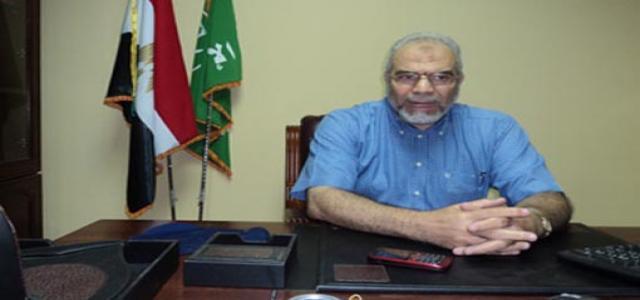- EGYPT
- August 1, 2012
- 3 minutes read
No Political Role for Military Establishment in New Egyptian Constitution, Says Brotherhood

Dr. Mahmoud Ghozlan, member of the Muslim Brotherhood‘s Guidance Bureau and member of the Constituent Assembly (CA) tasked with drawing up a new Constitution, affirmed that the Brotherhood refuses any political role for the military institution in the upcoming Constitution.
"The military institution belongs to the people, entrusted with protecting the homeland and its borders. There is no reason why some of its affairs should not be confidential, bearing in mind security issues inherent in this establishment’s affairs."
Ghozlan did not object to suggestions within the Committee for Defense and National Security – an offshoot of the CA’s System of Governance Committee – that the military’s status would be closer to the 1971 Constitution, so it would declare details of Armed Forces budget and laws to the National Defense Council, which includes civilian and military personnel, before submission to Parliament.
Meanwhile, Dr. Ghozlan denied that the Supreme Council of the Armed Forces (SCAF) will have any authority over Parliament in the country’s new national charter.
He further affirmed the Muslim Brotherhood’s respect for the vital role of the Armed Forces as a national institution that endeavors to protect the country and its borders.
He acknowledged that a part of the Armed Forces’ role will remain confidential, especially with regard to the ‘armament and weapons procurement’ section of the budget – but not the whole budget.
"This does not completely relieve the Armed Forces of government oversight."
Regarding the Brotherhood’s vision of Military Justice, Dr. Ghozlan said the new constitution will provide for the establishment of a disciplinary tribunal, for military personnel only, with respect to their affairs, but has nothing to do with civilians, so that civilians cannot be tried by court martial.
"Military justice does not entirely fit into our civilian judiciary system. Therefore, we are talking more about a disciplinary council for the military, than a judicial institution.
“Indeed, military judges are appointed by the Minister of Defense, who can also sack them. They are not immune to expulsion. And therefore, they are not judges to start with.
"Moreover, the Armed Forces are part of the executive branch. It, therefore, cannot be a part of the judiciary, too."
As for his vision for the Supreme Constitutional Court (SCC)’s status in the new Constitution, Ghozlan stressed the need to review relevant texts so that neither the SCC’s chairman nor its members are appointed by the President of the Republic, to avoid politicization.
"We must fortify the powers of the SCC by safeguarding its independence from the executive branch."



